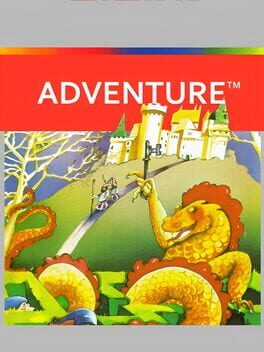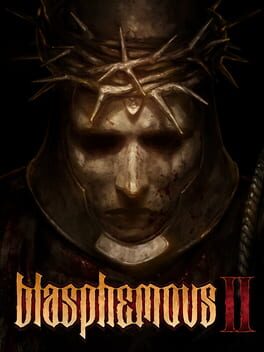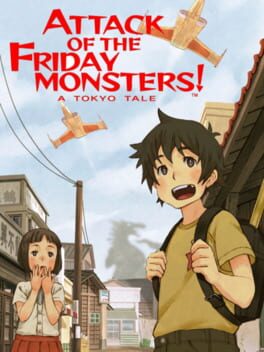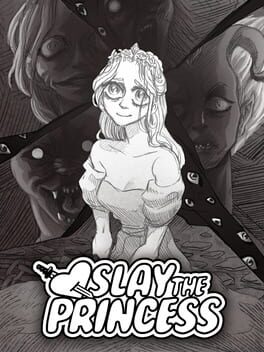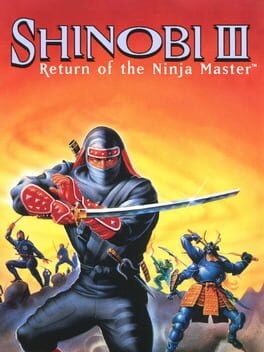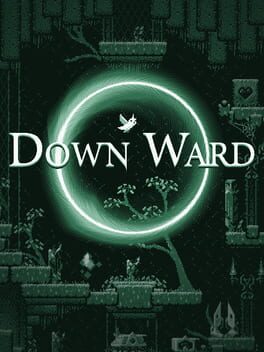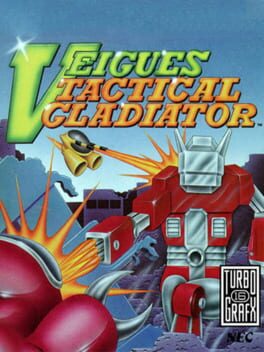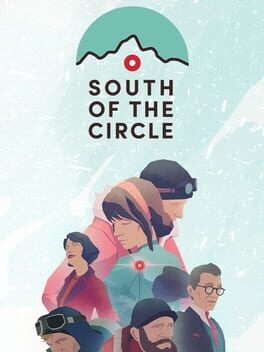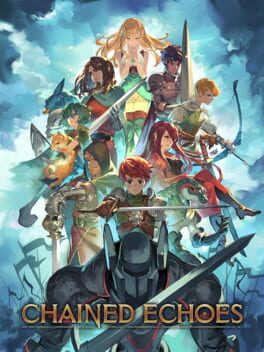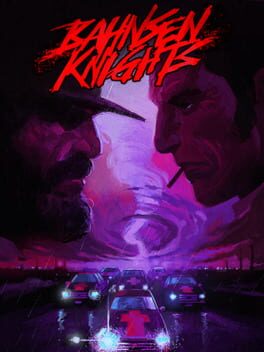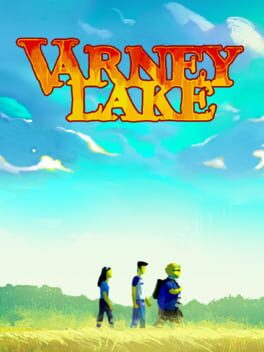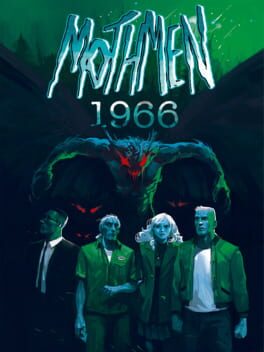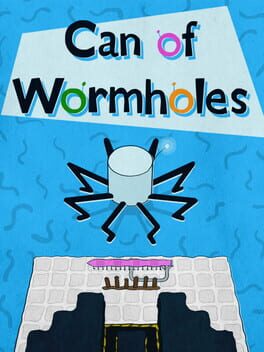1979
2022
2003
2023
My first game from Kaz Ayabe
I find myself in a bit of a dilemma. While the game, on the whole, didn't quite resonate with me, it does harbor fragments of what I cherish in an adventure game. It weaves a tale steeped in magical realism; a family relocates to a town where, seemingly, daikaiju appear and fight every Friday
However, as one swiftly discerns by exploring the place and conversing with some of the adults, it's all a fictitious: the town has been chosen as a TV/Movie set for tokusatsu shows. Yet, this revelation is never explicitly stated; the lens is that of the protagonist, a kid who earnestly believes in the existence of these colossal creatures. The game unfolds as the child spends a couple of days with his newfound friends, endeavoring to unravel the mystery of the kaijus.
Well, in any case something quite mysterious eventually happens.
Basically, the game is an adventure encapsulated within the tight confines of the town: only a handful of houses line the streets we traverse, and the entire space can be explored in a mere 5 minutes. It's an adventure on a minuscule scale, with fixed-camera angles and exquisitely hand-drawn backgrounds. Talking about the fixed-camera angles, I found their use to be quite interesting.
3D models are sparingly used: characters (excluding a cameraman) and a train that traverses tracks leading to and from the town. This, to me, is one of the most captivating aspects of games: the presence of elements and systems that unfold in real-time, shifting from one place to another while the player is engrossed in another pursuit. Numerous times, I found myself anticipating the arrival of a train, reaching an underpass where I could hear the clatter of the tracks, and finally ascending to a vantage point from which I could observe the same train fading from the screen. These nuances, in my case, provide an almost grounded experience, allowing me to immerse myself in the fictitious setting on-screen. Regrettably, the rest of the game tends to be rather static, offering only fleeting impressions despite being developed by LEVEL-5. However, one should not expect too much, as it's part of the smaller projects from the Guild01 and Guild02 series, collaborations with other developers, published on the eShop.
The magical realism that permeates the game is particularly intriguing during those brief moments when it endeavors to reconstruct an era of Japanese suburbs. A period marked by technological innovation, economic prosperity, and rural realities converging - a blend of factors that provides fertile ground for the surreal aspects of this narrative. The fumes of industrialization, visible in the distant background (not integral to the story but contextualizing its historical backdrop), almost seem like a remote reality. In this context, tokusatsu serves as more than a symbol of the protagonist's growth; it mirrors the maturation of the entire Japanese town.
On several occasions we talk to the adults inhabiting this small town on the outskirts of Tokyo. These instances are practically the only times when you find yourself in rather confined, almost humble spaces, and in close proximity. Let's say that it's in these moments that you truly have the opportunity to appreciate both your own and others' facial expressions. On the contrary, the rest of the game (mostly spent conversing with friends and peers) unfolds in much larger spaces; at times, the perspective is from above, and the view extends towards the horizon. It almost creates a distinction between the adult world and that of the youth
A prominent aspect the game irks me: the necessity to traverse back and forth to engage in conversations with all the characters, gradually peeling back the layers of their mundane stories. I think the game gets kind of erratic in an annoying way. While this is formalized through a structure of progressing sub-quests, I didn't like it since it's all so brief, free and oversimplistic (I don't want to say superficial) at the same time. What's more vexing is having to do so in situations that, from the protagonist's perspective, should be particularly intense and urgent. Granted, this is a common occurrence in many games, where one can stop from doing something urgent to partake in secondary activities. However, in this case, I think an even more linear experience would have undoubtedly enhanced the overall immersion.
On the opposite, I didn't mind the card game. I don't really care about it and its rules though, since it mainly serves the story and the context - serving as a reflection of the television success of tokusatsu shows in the '60s and '70s. It mirrors perfectly the carefree nature of the children on-screen and the very magical realism that defines the story. The children's imagination materializes in their ability to merge cards and discover them in fragments.
While writing this comment of mine, I drew substantial inspiration from Cadensia's captivating review, which I wholeheartedly recommend you to read.
Final thought: the whole cast of characters is well made, each one of them has a distinguished personality that makes them kind of memorable.
I guess that my main grip with the game is that it almost feels like a very fast prologue that will never see an extension of its scopes.
I find myself in a bit of a dilemma. While the game, on the whole, didn't quite resonate with me, it does harbor fragments of what I cherish in an adventure game. It weaves a tale steeped in magical realism; a family relocates to a town where, seemingly, daikaiju appear and fight every Friday
However, as one swiftly discerns by exploring the place and conversing with some of the adults, it's all a fictitious: the town has been chosen as a TV/Movie set for tokusatsu shows. Yet, this revelation is never explicitly stated; the lens is that of the protagonist, a kid who earnestly believes in the existence of these colossal creatures. The game unfolds as the child spends a couple of days with his newfound friends, endeavoring to unravel the mystery of the kaijus.
Well, in any case something quite mysterious eventually happens.
Basically, the game is an adventure encapsulated within the tight confines of the town: only a handful of houses line the streets we traverse, and the entire space can be explored in a mere 5 minutes. It's an adventure on a minuscule scale, with fixed-camera angles and exquisitely hand-drawn backgrounds. Talking about the fixed-camera angles, I found their use to be quite interesting.
3D models are sparingly used: characters (excluding a cameraman) and a train that traverses tracks leading to and from the town. This, to me, is one of the most captivating aspects of games: the presence of elements and systems that unfold in real-time, shifting from one place to another while the player is engrossed in another pursuit. Numerous times, I found myself anticipating the arrival of a train, reaching an underpass where I could hear the clatter of the tracks, and finally ascending to a vantage point from which I could observe the same train fading from the screen. These nuances, in my case, provide an almost grounded experience, allowing me to immerse myself in the fictitious setting on-screen. Regrettably, the rest of the game tends to be rather static, offering only fleeting impressions despite being developed by LEVEL-5. However, one should not expect too much, as it's part of the smaller projects from the Guild01 and Guild02 series, collaborations with other developers, published on the eShop.
The magical realism that permeates the game is particularly intriguing during those brief moments when it endeavors to reconstruct an era of Japanese suburbs. A period marked by technological innovation, economic prosperity, and rural realities converging - a blend of factors that provides fertile ground for the surreal aspects of this narrative. The fumes of industrialization, visible in the distant background (not integral to the story but contextualizing its historical backdrop), almost seem like a remote reality. In this context, tokusatsu serves as more than a symbol of the protagonist's growth; it mirrors the maturation of the entire Japanese town.
On several occasions we talk to the adults inhabiting this small town on the outskirts of Tokyo. These instances are practically the only times when you find yourself in rather confined, almost humble spaces, and in close proximity. Let's say that it's in these moments that you truly have the opportunity to appreciate both your own and others' facial expressions. On the contrary, the rest of the game (mostly spent conversing with friends and peers) unfolds in much larger spaces; at times, the perspective is from above, and the view extends towards the horizon. It almost creates a distinction between the adult world and that of the youth
A prominent aspect the game irks me: the necessity to traverse back and forth to engage in conversations with all the characters, gradually peeling back the layers of their mundane stories. I think the game gets kind of erratic in an annoying way. While this is formalized through a structure of progressing sub-quests, I didn't like it since it's all so brief, free and oversimplistic (I don't want to say superficial) at the same time. What's more vexing is having to do so in situations that, from the protagonist's perspective, should be particularly intense and urgent. Granted, this is a common occurrence in many games, where one can stop from doing something urgent to partake in secondary activities. However, in this case, I think an even more linear experience would have undoubtedly enhanced the overall immersion.
On the opposite, I didn't mind the card game. I don't really care about it and its rules though, since it mainly serves the story and the context - serving as a reflection of the television success of tokusatsu shows in the '60s and '70s. It mirrors perfectly the carefree nature of the children on-screen and the very magical realism that defines the story. The children's imagination materializes in their ability to merge cards and discover them in fragments.
While writing this comment of mine, I drew substantial inspiration from Cadensia's captivating review, which I wholeheartedly recommend you to read.
Final thought: the whole cast of characters is well made, each one of them has a distinguished personality that makes them kind of memorable.
I guess that my main grip with the game is that it almost feels like a very fast prologue that will never see an extension of its scopes.
2023
2019
2020
Good voice acting, good characters, good story. I also didn't mind the fact that choices didn't really make any difference in terms of how things went: what I liked was the chance to see what the character felt, through those choices. In a way, it is something that only this medium can do through some simple game design ideas. What I didn't like though was the ending.
One aspect that the game explored well in the first two and a half hours was the relationship between power, toxic masculinity, and how these two elements ultimately shape the mind and behaviors of an individual. They determine to what extent one can prioritize oneself over others. The historical context of the Cold War is excellent, and the inclusion of a discourse on women's rights is highly fitting in addressing the theme of power.
Unfortunately, for reasons I'm not quite sure of, the decision is made to undermine the connection between choices, attitudes, power, culture, and social relationships by revealing that the protagonist lies to himself even within his own memories, trying to remember his past under a different light (maybe a better one). Apparently, what is said and done never corresponds to the truth. Yet, this is something that has no impact on the entire game, is not significant for any of the themes explored, and I absolutely do not understand the significance of this kind of unreliabilty. In the last half hour of the game (quite a significant slice, considering the game is barely three hours long, and very short at the same time since it develops suddenly and too fast), the focus shifts completely, destroying everything that was being built up to that point. I can't help but think that perhaps the protagonist behaved, throughout the many events in which we were involved, modeling himself after his father or something like that; unfortunately, even if that were the case, the execution is horribly superficial. And it's a shame, especially considering that there are some moments where the transitions are truly impactful in revealing the character's past: in my opinion, they could have been the real strength of the entire game and yet they were not explored enough
One aspect that the game explored well in the first two and a half hours was the relationship between power, toxic masculinity, and how these two elements ultimately shape the mind and behaviors of an individual. They determine to what extent one can prioritize oneself over others. The historical context of the Cold War is excellent, and the inclusion of a discourse on women's rights is highly fitting in addressing the theme of power.
Unfortunately, for reasons I'm not quite sure of, the decision is made to undermine the connection between choices, attitudes, power, culture, and social relationships by revealing that the protagonist lies to himself even within his own memories, trying to remember his past under a different light (maybe a better one). Apparently, what is said and done never corresponds to the truth. Yet, this is something that has no impact on the entire game, is not significant for any of the themes explored, and I absolutely do not understand the significance of this kind of unreliabilty. In the last half hour of the game (quite a significant slice, considering the game is barely three hours long, and very short at the same time since it develops suddenly and too fast), the focus shifts completely, destroying everything that was being built up to that point. I can't help but think that perhaps the protagonist behaved, throughout the many events in which we were involved, modeling himself after his father or something like that; unfortunately, even if that were the case, the execution is horribly superficial. And it's a shame, especially considering that there are some moments where the transitions are truly impactful in revealing the character's past: in my opinion, they could have been the real strength of the entire game and yet they were not explored enough
2022
So, I'd like to start by acknowledging that this game is a commendable effort, considering it's the work of a single individual. Set in a fantasy world, mixing fantasy and sci-fi tropes, it draws inspiration from many other jRPGs
In my opinion, the story is far from boring; on the contrary, I found it to be really captivating. Discovering certain aspects and encountering unexpected plot twists made me more inclined to delve deeper into the narrative. The combat system is also quite enjoyable, since it doesn't push for extensive grinding, partly because leveling up is a rather slow process and because all enemy encounters are hand-placed: this is something that I particularly like, also because you are always allowed to get the fuck out of a fight without any kind of punishment. I also appreciate how, at the end of a fight, all characters in the party are automatically healed, giving purpose to the utilization of all available resources in battle. I undoubtedly have also to include the Overdrive Bar in all of this. It is a widely debated component that, overall, I don't mind; however, even on Normal difficulty, I find it quite easy to end up in disadvantage and in those cases the Overdrive Bar becomes a drawback for the player (me) pretty often
Also I really loved the pixel art, the world-building (to some extent) and the animations
Unfortunately, I didn't really come to like the whole game
Be it because of inconsistent writing and ideas, unsatisfying characters (also, too many of them; a couple of them are well developed at the expense of the other 10), weird difficulty spikes (e.g.: encounters of three-four enemies that knock out the entire team, I really hate how Agility works here) and breakability (e.g.: again, the Agility system), weird class regulation (e.g.: of course you normally need a healer to survive in any jRPG, but, in the first 10hrs or so, Victor's Mazurka could arguably be the most important piece on the board - Amalia enters the chat), the music and sound design, the introduction of mechs for exploration (I liked the idea, I didn't like its execution), all the little secrets (I'm talking about the arrow-signals on the ground), the crystal system
This time I don't want to be harsh, so I won't get into the details. In any case, I truly hope that the developer will keep up with his work
In my opinion, the story is far from boring; on the contrary, I found it to be really captivating. Discovering certain aspects and encountering unexpected plot twists made me more inclined to delve deeper into the narrative. The combat system is also quite enjoyable, since it doesn't push for extensive grinding, partly because leveling up is a rather slow process and because all enemy encounters are hand-placed: this is something that I particularly like, also because you are always allowed to get the fuck out of a fight without any kind of punishment. I also appreciate how, at the end of a fight, all characters in the party are automatically healed, giving purpose to the utilization of all available resources in battle. I undoubtedly have also to include the Overdrive Bar in all of this. It is a widely debated component that, overall, I don't mind; however, even on Normal difficulty, I find it quite easy to end up in disadvantage and in those cases the Overdrive Bar becomes a drawback for the player (me) pretty often
Also I really loved the pixel art, the world-building (to some extent) and the animations
Unfortunately, I didn't really come to like the whole game
Be it because of inconsistent writing and ideas, unsatisfying characters (also, too many of them; a couple of them are well developed at the expense of the other 10), weird difficulty spikes (e.g.: encounters of three-four enemies that knock out the entire team, I really hate how Agility works here) and breakability (e.g.: again, the Agility system), weird class regulation (e.g.: of course you normally need a healer to survive in any jRPG, but, in the first 10hrs or so, Victor's Mazurka could arguably be the most important piece on the board - Amalia enters the chat), the music and sound design, the introduction of mechs for exploration (I liked the idea, I didn't like its execution), all the little secrets (I'm talking about the arrow-signals on the ground), the crystal system
This time I don't want to be harsh, so I won't get into the details. In any case, I truly hope that the developer will keep up with his work
2023
2023
I find this game to be less captivating than Mothmen. The gameplay, in my opinion, experiences a slight drawback due to a noticeable lack of variation. Additionally, the narratives fail to leave a lasting impression on me. While the initial episode evoked comparisons to a weak "The Twilight Zone" installment, this particular episode, unfortunately, doesn't evoke any significant thought for me. Furthermore, it feels kind of hollow
I understand that this time the included mini-games serve as a means to involve players in the adventures of three individuals navigating between the ordinary and the paranormal. There is an underlying schizophrenia between indulging in fishing and delving into the life adventures of a vampire, who may be part of some sect and a larger mystery. However, I haven't truly experienced any emotions that could make me feel connected to these nuanced territories. Similarly, I haven't felt anything towards the escapism of the three protagonists, who are united by their family shortcomings. Perhaps, this time, it's because too many things happen too quickly over the years. While the narrative device of interviews allowing time travel between the present and future is intriguing, the shallowness with which it occurs this time prevents me from appreciating the game itself
I understand that this time the included mini-games serve as a means to involve players in the adventures of three individuals navigating between the ordinary and the paranormal. There is an underlying schizophrenia between indulging in fishing and delving into the life adventures of a vampire, who may be part of some sect and a larger mystery. However, I haven't truly experienced any emotions that could make me feel connected to these nuanced territories. Similarly, I haven't felt anything towards the escapism of the three protagonists, who are united by their family shortcomings. Perhaps, this time, it's because too many things happen too quickly over the years. While the narrative device of interviews allowing time travel between the present and future is intriguing, the shallowness with which it occurs this time prevents me from appreciating the game itself
2022
2023
